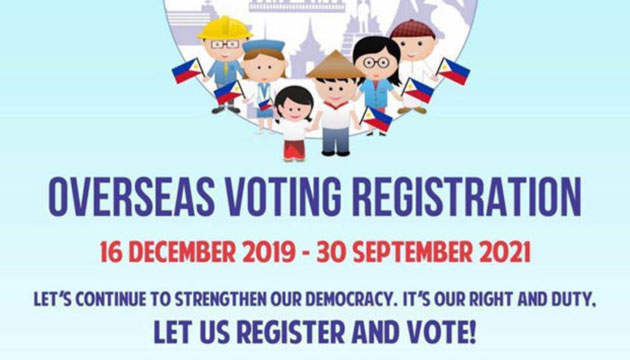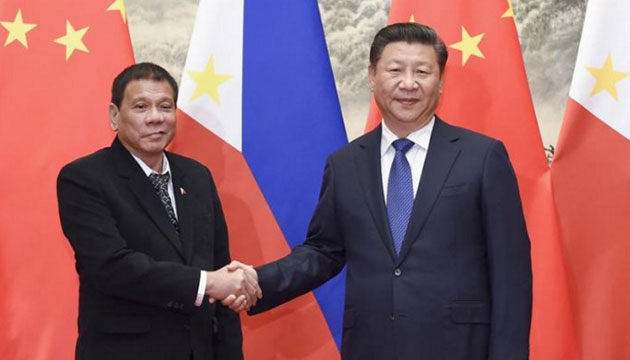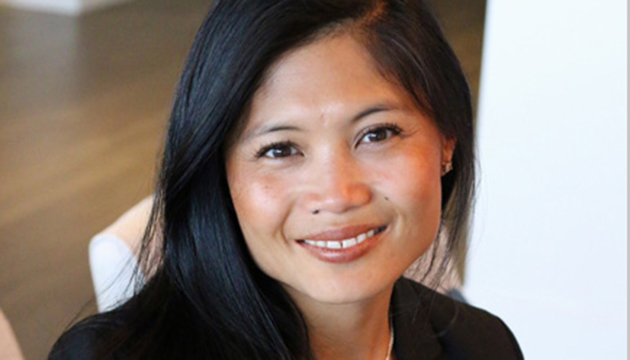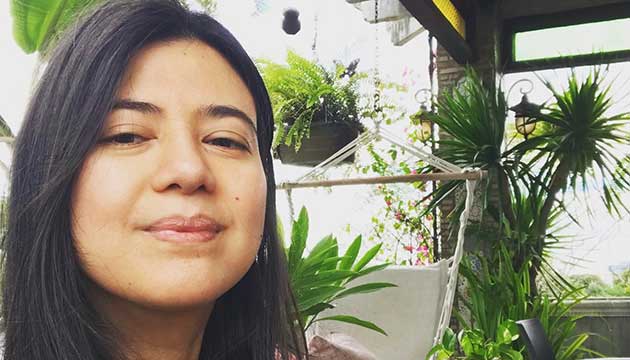December 16, 2023 — William Howard Taft is best known as the 27th president and 10th chief justice of the United States. Prior to this, Taft was his country’s first civilian governor of the Philippines from 1901 to 1903. But when Filipino Canadian screenwriter Jorelle Almeda came up with an amusing TV pilot on this topic, his peers were befuddled.
At the time, Almeda was enrolled in a UCLA comedic-television writing program.
“None of my classmates had any idea that the Philippines was even a colony at any point,” Almeda tells Pancouver over Zoom. “I found it super-shocking that such an important part of history for them—and for the U.S. and us—had been…swept under the rug.”
The Vancouver-born Almeda graduated from UBC in 2017 with a major in history and minor in international relations. And he incorporates his fascination with history—and particularly the history of Filipino migration—into his screenwriting, comedy, storyboard artistry, and other creative pursuits.
“I can talk about history for days,” Almeda says. “That’s kind of my jam.”
In addition to working as a post-production coordinator at WildBrain, Almeda is part of the Un-Named Sketch Show collective.
On December 14, he was set to join fellow comedians Joe Stillwell, Karinga Wells, Maddy Rafter, and others in presenting pre-written comedy scenes at the Improv Centre (1502 Duranleau Street) on Granville Island.
“We have a rule on our team,” Almeda says. “If you write a sketch, you have to act in it. It’s a lot of fun.”
He knew Rafter from doing standup comedy at UBC. While acting in a show called The Vibe hosted by Blind Tiger Comedy, he met Stillwell, whom he later worked with at WildBrain. Almeda joined the Un-Named Sketch Show collective last August after sending Stillwell some scenes that he had written.
Initially, Almeda helped out on the technical side, editing video. He’s now the team’s digital producer in addition to writing and performing sketches. Almeda finds ways to weave aspects of his Filipino heritage into these shows.
“I made a few jokes here and there about the status of offshore workers, or using a Filipino accent,” Almeda says.
That’s not all that he does creatively. Almeda paints, plus he cowrote the graphic novel Sunder with Pierre-Alexandre Comtois.
Almeda cites Craig Mazin of Scriptnotes as someone who has influenced his writing. As Almeda was growing up, another pivotal figure was the multi-talented Donald Glover, a.k.a. Childish Gambino.
“He gets to call himself an actor, writer, rapper,” Almeda says. “I was, like, ‘If someone can do stuff like that, maybe I could try to do that myself, as well.’ ”
Beyond Mazin and Glover, however, are his parents. They always advised not to let failure define him.
“I get my sense of humour from my dad and my sense of empathy from my mom,” Almeda says. “They have had their hardships and have provided so much for me. That’s one of the driving forces for me as a creative.”
Almeda speaks French, thanks to taking French immersion in school. He learned Tagalog from his parents. And he’s been adept at doing impressions from a young age.
Moreover, he states that Filipino people are often very good at using their voices. The first nonwhite voice actor to play Bugs Bunny, for example, is Canadian Filipino Eric Bauza. Moreover, Almeda says that singing is ingrained in Filipino culture.
“I know several people on YouTube who can do Mariah Carey voices so impeccably,” he says. “We’ve grown as a people to be able to mimic voices really well and sing really well.”
As for his mother’s empathy, he suggests that this quality is also part of Filipino culture. Furthermore, Almeda says that it’s reflected in the Tagalog phrase “pasensya na”. According to him, it directly translates to “I’m sorry” but it can also mean “please bear with me” or “please be patient”.
“It is an empathetic term that is used often by many Filipinos,” Almeda declares.
He believes mainstream movies have largely missed the mark in reflecting authentic Filipino experiences. Instead, he maintains that they’ve highlighted “tropes that other people will understand versus stories that would resonate with ourselves”.
However, Almeda believes that the zeitgeist is changing—and he expects to see deeper examinations of Filipino culture on-screen in the future with a new generation of creators.
“I feel that we’re on the precipice of hitting that stride,” Almeda says.
His enthusiasm and sense of humour reverberate throughout the interview. But Almeda also has a serious side, especially when discussing the long-term consequences of colonialism on the Philippines. He mentions that at UBC, he read University of Illinois Urbana-Champagn historian Kristin Hoganson’s 1998 book, Fighting for American Manhood: How Gender Politics Provoked the Spanish-American and Philippine-American Wars.
From this and other reading, Almeda learned that prior to the Spanish-American War of 1898, U.S. propaganda likened South American countries and Filipinos as “maidens” in need of rescuing from the “bad” Spaniards.
“Ironically, after the Spanish left, things almost got worse—to some degree—for the Filipinos,” Almeda says.
Taft set this new U.S. colonialism in motion after another former president, William McKinley, had appointed him to head the Second Philippine Commission in 1900. It acted as the legislative body of the Philippines until Taft became the civil governor just over a year later.
Almeda recognizes that colonialism has a long history in the Philippines, where his parents were born. Even before Spanish colonization in the 16th century, people from India and Southeast Asia were having an impact.
As a result of the last 600 years of colonization, Almeda suggests that there’s a “kind of crab in the bucket mentality” in the Philippines. He quips that if one Filipino person has a fake Louis Vuitton purse, someone else “will call that shit out behind their back because they want to feel better than the other person”.
But then he offers an empathetic and historically informed explanation.
“This is a remnant of colonialism, where it’s very common for occupying powers to divide people,” Almeda says. “We saw that with the British and the Indians. The Spanish did the same thing with the Filipinos.
“They divided the mestizos—Filipino people with the fairer complexions—and the labourers, who were of a little darker complexion,” he continues. “So, we were all fighting with one another. If we’re all competing against each other, we’ll never be unified.”
Shortly before the interview, Almeda was musing to himself in the car about the country’s name: Philippines. It comes from King Philip II of Spain. He ruled when the archipelago of 7,000 islands became a Spanish colony.
This provides fodder for more biting humour.
“It’s almost as if they chose the hardest way to pronounce the name of our country—with a ‘Ph’,” Almeda says with a laugh. “It’s an ‘F’ sound but it’s spelled with a ‘P’.”
According to him, if you ask a North American Filipino to speak with an accent from the Philippines, they’ll likely swap the “F” with the “P”. This means that they will pronounce the country as “Pilippines” and its residents as “Pilipinos”.
“It’s as if the Spaniards [said}, ‘They don’t have the letter “F” in their vocabulary. So let’s stick it to them forever—and call it “Ph”, so it’s impossible for them to pronounce it.’ ”
With that, Almeda lets out another laugh. He can rest assured that he’s come up with yet another original and amusing observation on a colonial project that left such a lasting and painful imprint on his ancestral homeland.
[Editor’s note: This article was first published on the arts-focused platform Pancouver.ca]












